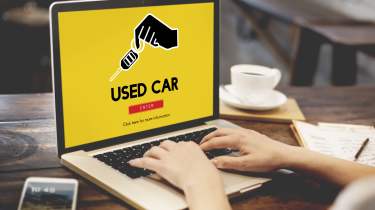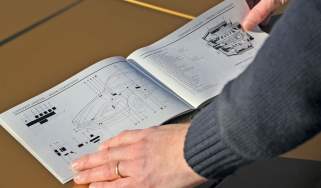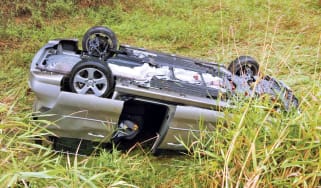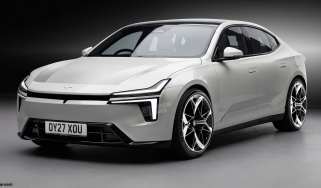Used car finance explained: how to finance a second-hand car
Want to buy a used car through a finance scheme? Here’s everything you need to know

If you’re thinking about buying a second-hand car, you’ll be faced with a variety of used car finance deal options to help you pay for it. However, there’s a lot to consider before signing on the dotted line, especially if you want the best value. Don’t worry, though, as we’re here to fully explain how to finance a used car.
What is used car finance?
There’s no avoiding the fact that most cars are very expensive to buy. So, unless you’re fortunate enough to have thousands of pounds lining your pocket, you’ll probably need a bit of help towards paying for your next car.
A used car finance plan will provide the money for your purchase upfront. Once you’ve set up a finance plan, you’ll first pay a deposit and then repay the rest through set monthly instalments over a predetermined period of time. Naturally, as with any type of loan, you’ll have to be approved by a lender beforehand, and it’s very likely that you’ll pay a rate of interest.
There are also a number of different plans to choose from, each with its own pros and cons, and understanding which one is best for your financial situation could potentially save you thousands of pounds.
How does financing a used car work?
Whether you’re looking at buying a used car from a dealer or privately, there will be a number of financing options available to you. Regardless of the type of plan you choose, any potential lender will look at your credit report before agreeing to finance your new second-hand car. Your record will also affect the rate of interest you pay.
Once you’ve been accepted, the finance provider will release the money to purchase your car and you’ll be contractually obliged to pay back a set amount by the end of an agreed time period. If you have taken out a Hire Purchase (HP) plan or a bank loan, you will own the car once the debt is fully paid off.
If you have entered a Personal Contract Purchase or Personal Contract Hire leasing plan, you will not own the car at the end of the agreement. PCPs will give you the option to pay a larger final sum to own the car, and this is known as a final ‘balloon’ payment. You will not have this choice if you have leased the car on a PCH deal.
A wider range of deals tend to be offered on used cars that are being sold by dealerships. Professional sellers often have access to more complex and exclusive finance deals, but it’s important to remember that referrals tend to be on a commission basis, so a dealership’s plan might not offer the very best value.
If you’re buying a used car privately, you can still pay through a finance plan. However, you will need to find and arrange this yourself, and your options may be more restricted. Regardless of where you’re buying a car from, though, it always pays to shop around for the best finance deal.
Types of used car finance
There are a number of different used car finance plans to choose from, each with their own pros and cons. Understanding which one is best for your financial situation could potentially save you thousands of pounds.
Personal Contract Purchase (PCP)
Personal Contract Purchase (PCP) finance is common when it comes to new car buying, but many dealers and finance companies offer this type of finance for used cars as well. It’s probably the most complicated of the types of used car finance, but it’s still not too hard to understand.

You make a deposit on the car to start with, and this is usually around 10 per cent of the car’s value (although the amount is flexible). After you’ve paid this deposit, you’ll then make a series of monthly payments, usually for three or four years. At the end of the PCP agreement you’ll be faced with an optional ‘balloon’ payment that will allow you to own the car outright. If you choose not to pay, you can hand the car back and then part ways with the finance provider.
PCP is useful for those who know they will want to change into a different car every three or four years.
Hire Purchase (HP, Conditional Sale)
Hire Purchase is sometimes called Conditional Sale, though the name Hire Purchase is more descriptive. You pay a monthly amount over a fixed period of time that pays for the car in full. Unlike PCP, you will own the car at the end of an HP agreement.
HP often costs more than PCP per month, but it’s well suited for those who want to own the car at the end of the finance agreement.
Personal Contract Hire (PCH, leasing)
If you’d rather lease a used car than own it, Personal Contract Hire (PCH) plans are fairly similar to the car hire arrangements that you will find on holiday, just over a longer period. You will pay an initial deposit and then a monthly rate to drive the car. When the contract is finished, you simply hand the car back.
Used car leasing deals are only available from specialist brokers, and these companies stock their own cars for you to choose from. There’s no option to own the car at the end of a PCH plan, so you’re basically paying to rent it. It’s also worth noting that you will have to stay within an annual mileage allowance, and this will vary depending on your chosen leasing deal.
PCH plans are ideal for those who will want to change cars after a certain amount of time, as it’s often the cheapest option overall. It’s less common on used cars than new but there are a number of leasing deals to be found on nearly-new models.
Bank loan
If you are buying a used car privately then you may be best off getting a personal loan from a bank. This is like using a credit card where you borrow the money to pay a lump sum now, then pay it back monthly. This can be useful for people who want to own the car immediately - for example if you want to modify it.
Because you’ll own the car outright, you can also choose to sell it, which isn’t permitted with a car on a finance deal.
Used car finance tips
Below are our top tips to help you get your used car finance deal right.
1. Compare quotes
One thing to remember when you are choosing a used car is that you should compare the entire quote, not just the advertised price. The first thing to compare is the interest rates, and there are two to be aware of. The first is the base rate and the second is called APR. The base rate is simply the amount charged on the money loaned, while the APR includes other fees and costs, so it’s more directly comparable to other loans.
The next thing to check is the total amount payable. You might be tempted by a zero per cent interest rate, but the total amount you actually pay could actually be more than another deal with a higher interest rate. Ultimately the amount of money you pay is the most important thing, so the total amount payable is a key figure to compare.
If it’s not listed or provided to you, you can work out the total amount payable by multiplying the monthly payment by the number of payments, then add any other costs such as a deposit in the case of PCP finance (plus any other fees or charges). This will give you a more accurate figure to compare with other deals.
2. Don’t forget the balloon payment
Remember that if you buy using PCP, you will have the option to buy the car at the end. If you don’t take this offer up, you don’t have to add this balloon payment on to the total cost.
Think about this decision - if you are unsure about whether you’ll want to buy the car at the end of the monthly payments, PCP is a good option. If you’re certain that you won’t keep it, though, PCH leasing is the better option in a lot of cases. Hire Purchase is great for those who are definite they want to own the car, but can’t pay for it now and don’t want a bank loan.
3. Credit scores and length of contract
Your credit score is another factor to consider. Your options may be limited if you have bad credit, but this doesn’t mean it’s impossible to buy a car on finance if you’re in that situation. There are often solutions, but you will probably be treated as higher risk and will have to pay more as a result.
You can lower the monthly payments sometimes by offering a larger deposit at the start of the finance agreement. It’s something to think about - the more you can pay now, the less you’ll pay each month into the future.
It’s a similar story with the length of the agreement. If you are repaying it for a longer amount of time, it’s possible to lower the monthly cost. However it’s worth remembering that a high interest rate will mean the total cost goes up along with the length of time. The faster you pay back, the lower the total cost in most cases, but the actual payments will probably be higher.
4. Check the car carefully
Finally there are all the other factors that you have to consider when buying a used car. If one car seems far cheaper to finance than another of the same type, it will probably be because something is wrong with the car. This could be anything ranging from tired paintwork to high mileage, or it could simply be a lower specification. Make sure you’re completely happy with the car before you agree to a finance deal. You could always pay for a professional inspection if your budget allows but, if in doubt, there are always plenty of other used cars out there.
Frequently Asked Questions
Used car finance can be a great way to pay for your new purchase on a manageable monthly basis. However, you must be certain that you can afford to make the repayments on time throughout the contract, otherwise you could find yourself in serious financial trouble.
Did you know you can buy a used car with Auto Express? Choose from tens of thousands of cars with trusted dealers around the UK. Click here to buy used with Auto Express now...









